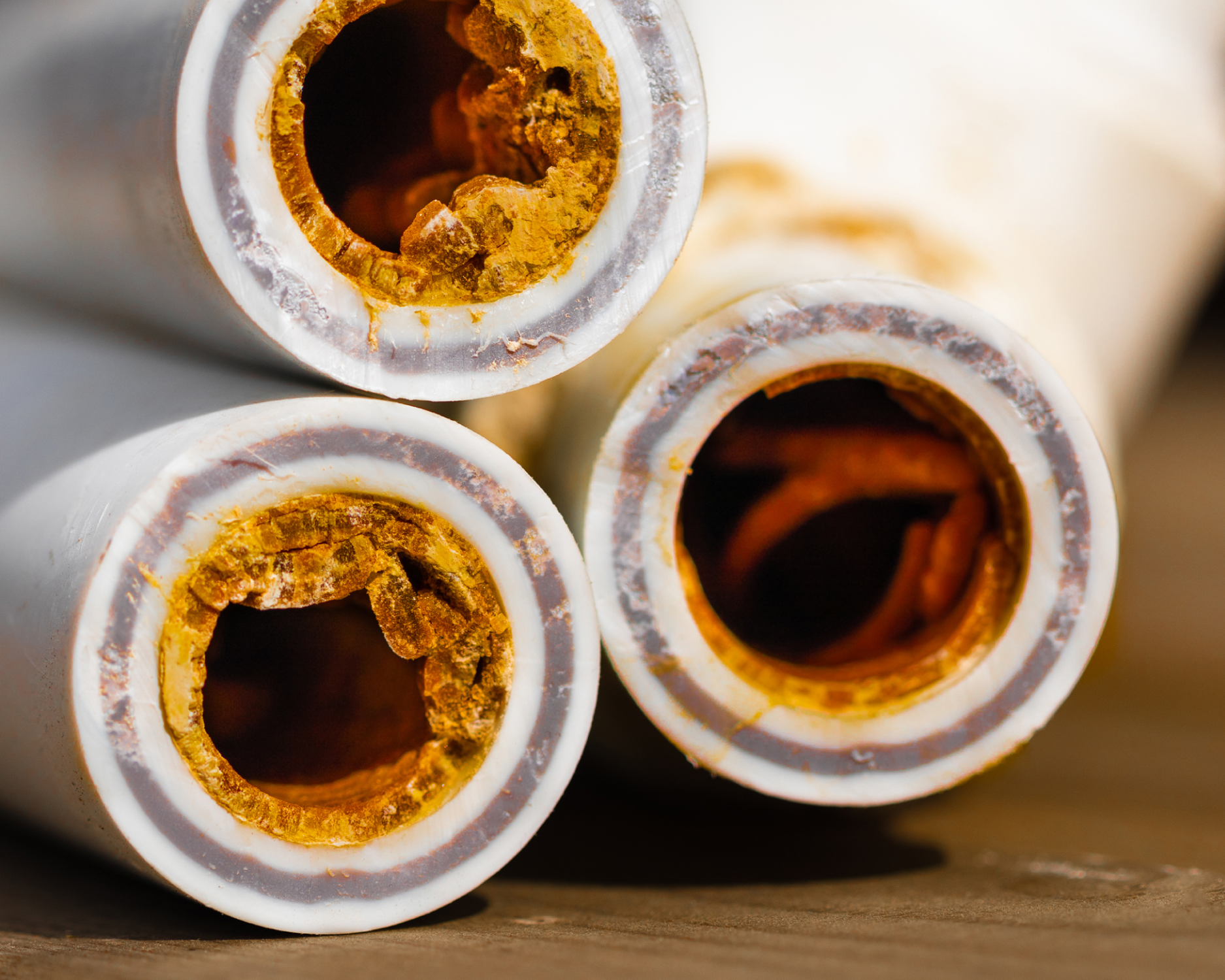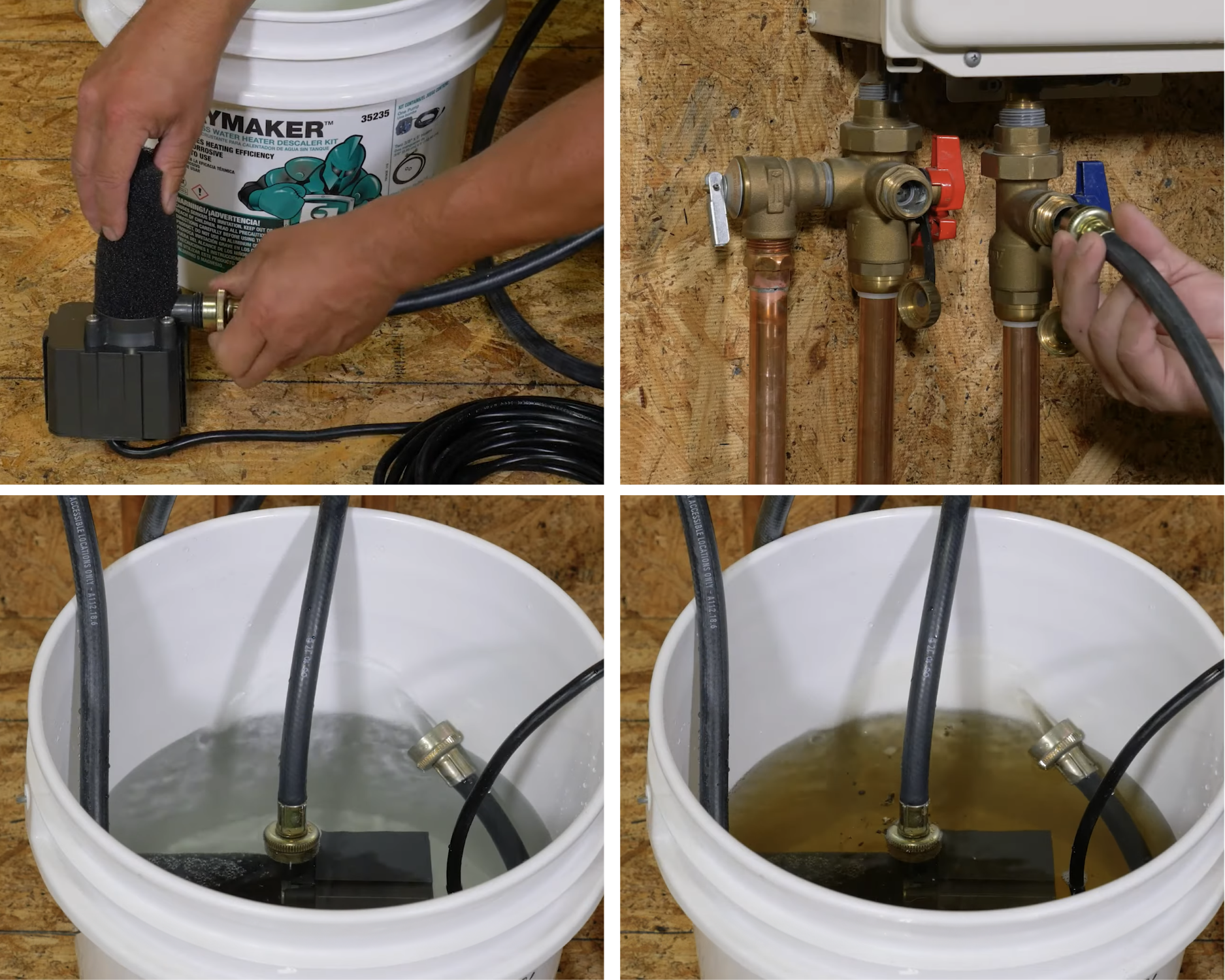Regular maintenance of your tankless water heater is essential for efficient hot water flow in your home. Unlike traditional water heaters that store heated water, tankless models heat water on demand, making them more efficient but also prone to mineral buildup, especially in areas with hard water.
What Is Descaling for a Tankless Water Heater?
Descaling is a crucial yearly maintenance task that removes mineral deposits that can accumulate over time. If ignored, these deposits can lead to inconsistent water temperatures, reduced hot water flow, increased energy consumption, and even complete system failure.
Recognizing the signs of mineral buildup early is vital. Addressing these issues promptly can prevent costly damage and ensure uninterrupted hot water access. Being aware of maintenance indicators helps extend the lifespan of your tankless water heater, maintain consistent water temperature, and keep utility costs down.
By staying proactive, you can avoid the inconvenience of unexpected cold showers due to preventable maintenance issues.
Need guidance on descaling your tankless water heater? Check out our helpful guide.
Six Signs Your Tankless Water Heater Needs Descaling
1. Reduced hot water output
If you notice that your hot water isn’t lasting as long as it used to, or it doesn’t reach the desired temperature, this may be a result of scale restricting water flow or heat exchange. A properly functioning tankless heater should deliver consistent hot water.
2. Fluctuating water temperatures
Sudden, unexplained shifts between hot and cold water can signal that mineral buildup is interfering with internal sensors or heat exchangers. These fluctuations not only make showers uncomfortable, but also indicate the system is struggling to regulate temperature efficiently.
3. Increased energy bills
A spike in energy costs without a corresponding change in usage is often tied to appliance inefficiency. Your heater must work harder to achieve the same results as scale accumulates. Descaling tankless water heaters helps them run more efficiently and economically.
4. Unusual noises from the unit
Clicking, popping, or crackling noises are typically caused by mineral deposits interfering with the system’s normal operation. These sounds are audible evidence that your water heater may be in distress.
5. Error codes on the display
Many modern tankless heaters have error code systems that indicate operational issues. If your unit displays codes related to flow restriction, overheating, or sensor malfunction, scale buildup could be the root cause.
6. Visible scale buildup
Sometimes, the signs are plainly visible. A chalky, white residue on pipes or around inlet/outlet fittings is a telltale sign of scale. If it's visible on the outside, it’s likely much worse on the inside.
Consequences of Ignoring These Signs
Disregarding early warning signs can lead to bigger problems down the road. As scale builds up inside your system, the following issues become increasingly likely:
- System failure: Severe scale buildup can cause components to overheat or stop functioning altogether.
- Increased repair costs: The longer the buildup goes unaddressed, the more extensive (and expensive) the repairs.
- Lower energy efficiency: As your heater works harder to overcome scale, it consumes more electricity or gas, reducing overall efficiency.
- Compromised water quality: In extreme cases, scale fragments can flake off into your water supply, affecting cleanliness and safety.
By committing to regular checks and maintenance, you avoid the snowball effect of neglect and keep your system running like new.

What to Do When You Notice These Signs
If you’ve observed any of the signs mentioned, don’t ignore them. Begin by checking your owner’s manual for model-specific troubleshooting advice. Many brands include indicators or maintenance alerts that can help you diagnose the issue.
If you feel comfortable performing your own maintenance, descaling is a relatively straightforward DIY task. However, if you’re unsure or uncomfortable handling it, scheduling a professional service is a wise investment.
Preventive Measures to Avoid Frequent Scaling
Taking preventive steps today can help you avoid the hassle and cost of system issues and failure in the future. Here are a few effective strategies:
- Flush the unit regularly: Even between descaling sessions, flushing the heater with clean water can help prevent heavy buildup.
- Install a water softener: A whole-home softener reduces mineral content in your water, significantly reducing scale formation.
- Schedule annual inspections: A yearly professional inspection can catch potential problems early, even before visible signs emerge. A good rule of thumb is to descale your tankless water heater at least once a year. However, if your home has particularly hard water, you may need to do it every six to nine months. Some contractors will even recommend a specific maintenance schedule based on the manufacturer’s guidelines.

- Use high-quality descaling products: Products like the Hercules® Haymaker Tankless Water Heater Descaler Solution are designed to remove scale effectively while protecting your system. Hercules Haymaker is built to withstand harsh water conditions, ensuring water heater longevity and performance. It is citric acid-based, noncorrosive, and VOC-free, making it safe for septic systems, sewers, and potable water systems. The kit effectively removes carbonates, sulfates, phosphates, rust, oxides, and other mineral deposits, ensuring a tankless water heater performs at its best.
- Follow our detailed guide on Hercules Heating Systems Cleaners for instructions and product recommendations.
Staying ahead of tankless water heater issues starts with awareness. If you notice temperature fluctuations, strange noises, or rising energy bills, it might be time to descale your tankless water heater. Catching these signs early can help you avoid unnecessary costs and keep your system running smoothly.
Looking for more plumbing maintenance tips? Check out our blogs and project guides for more.
Frequently Asked Questions
-
How does a tankless water heater work?
-
Tankless water heaters heat water on demand as it flows through the unit, rather than storing it in a tank. This makes them more energy-efficient and space-saving.
-
-
What are the pros and cons of a tankless water heater?
-
Pros include energy efficiency, longer lifespan, and endless hot water. Cons may include higher upfront costs and potential performance issues if not maintained.
-
-
How often should I descale a tankless water heater?
-
At least once a year, or more frequently if you have hard water.
-
-
Can hard water damage a tankless water heater?
-
Yes. Hard water accelerates scale buildup inside the heat exchanger, which can reduce performance and cause long-term damage if not descaled regularly.
-
-
Can I descale my tankless water heater myself?
-
Yes, with the right tools like the Hercules® Haymaker Kit, DIY descaling is safe and effective.
-
-
What are the signs of scale buildup in a tankless water heater?
-
Reduced hot water, strange noises, fluctuating temperatures, and error codes.
-